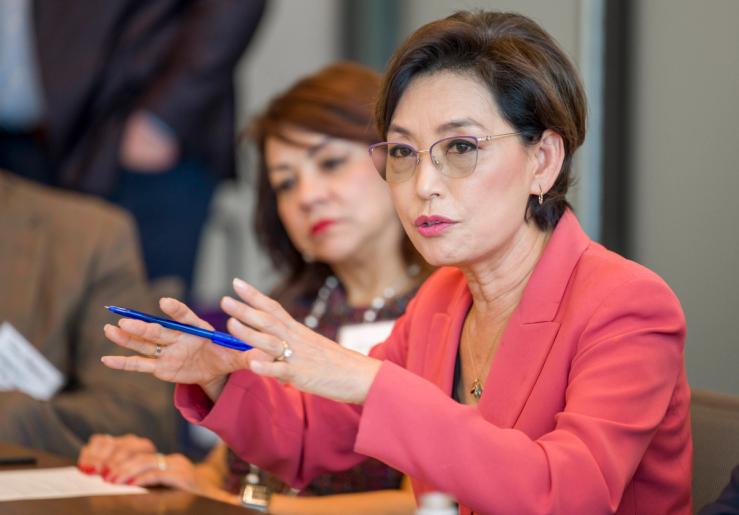the issue
Both Republicans and Democrats are worried about how much control Beijing has over the supply of critical minerals, and they want to do something about it.
China supplies about 90% of the globe’s rare earth elements and handles the production of other key minerals that help power the world’s technology and clean energy products.
As tensions between Washington and Beijing simmer, legislators want to see the US peel its mineral supply chains away from China — by establishing more mining and production within its own borders and helping allies do the same. That has taken on added urgency after China imposed export controls on rare earths in response to US tariffs, before relenting as part of a trade truce.
In this article:
the bond
Lawmakers on a key House Foreign Affairs subcommittee recently introduced legislation designed to disrupt China’s dominance of the global mineral supply by strengthening an existing program that aims to speed the creation of more diverse mineral pipelines.
The bill, introduced by Reps. Ami Bera, D-Calif., Young Kim, R-Calif., and James Moylan, Guam’s Republican congressional delegate, would put the State Department in charge of leading US participation in the Minerals Security Partnership, a Biden-era initiative that brought together 14 countries and the European Union to counter China’s mineral dominance.
If passed, the legislation aims to improve coordination between the partnership members; implement rules for countries cooperating on joint mineral projects; and create a new database for providing up-to-date information on existing projects. It would also authorize $75 million for the initiative.
China’s dominance of mineral supply chains “threatens the US economic and national security,” Kim, who chairs the Foreign Affairs East Asia and Pacific Subcommittee, told Semafor in an interview. “It is one of the most pressing security issues facing the United States today.”
China’s dominance in this space risks supply disruptions or what officials have termed “economic coercion” by Beijing, a Bera aide told Semafor.
Know More
Kim said she’s hopeful the legislation will receive a vote on the House floor, given the bipartisan nature of the proposal. Bera is the top Democrat on the Foreign Affairs East Asia and Pacific Subcommittee.
Sens. John Curtis, R-Utah, and Jeanne Shaheen, D-N.H., have introduced companion legislation in the Senate.
Kim, who plans to hold a roundtable with industry this week on the issue, said the bill is in line with the Trump administration’s priorities, noting the president’s early executive order designed to increase domestic critical mineral production.
“I recognize that domestic production alone will not meet the critical mineral needs of our economy and we also need to be ready to also support the economies of our friends and allies,” she said.
The View From china
A spokesman for the Chinese embassy in Washington defended Beijing’s use of export controls on minerals that have civilian and military uses.
“China has always attached great importance to maintaining the stability and security of the global supply chain. At the same time, imposing export controls on minerals with clear dual-use potential is consistent with international practice,” Liu Pengyu, the embassy spokesman, told Semafor in a statement.
“As a responsible major country, China fully takes into account the legitimate civilian demand for these strategic minerals from other countries. Export license applications are reviewed in accordance with laws and regulations, and compliant applications are approved accordingly,” he added, noting that Beijing opposes “unreasonable accusations” that invoke national security.
Notable
- China is choking off the flow of critical minerals to Western defense companies that need them to produce military equipment, The Wall Street Journal reported.
- Last week, the Trump administration proposed almost $1 billion to fund development of US critical minerals and materials, Reuters reported.


